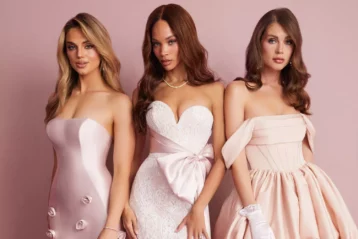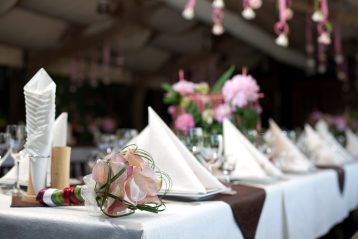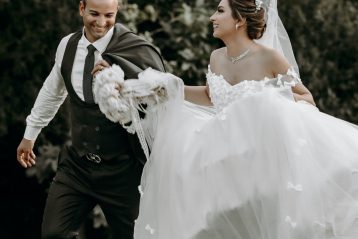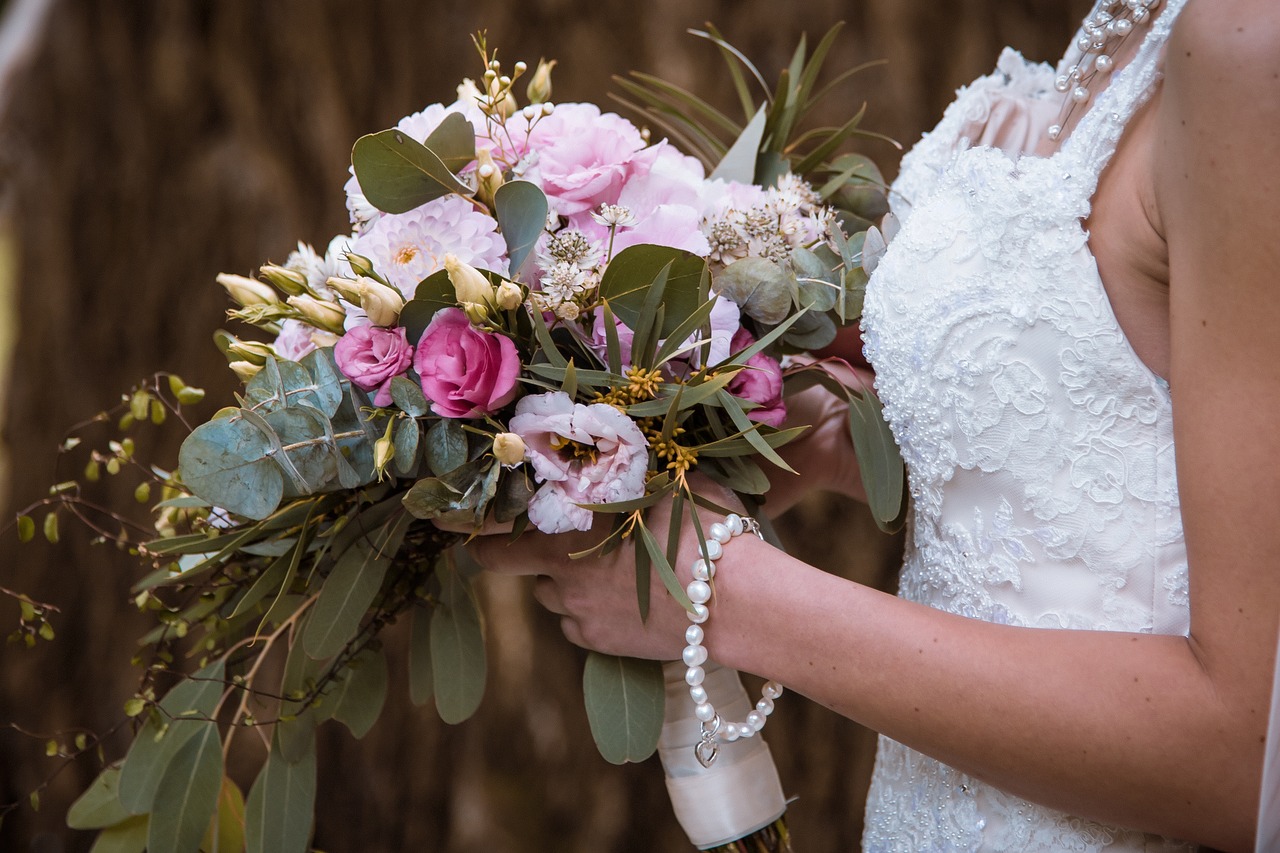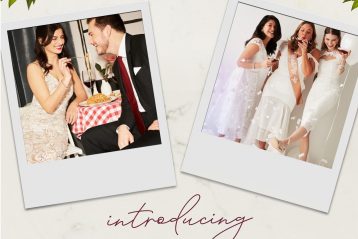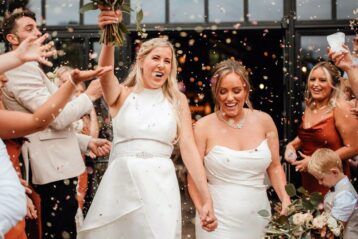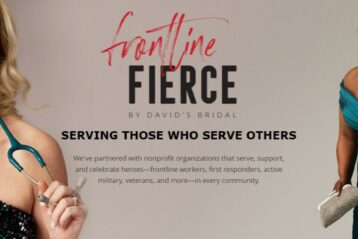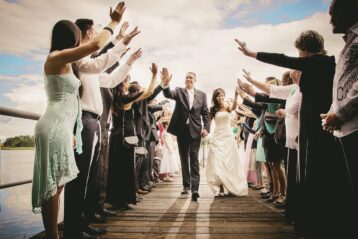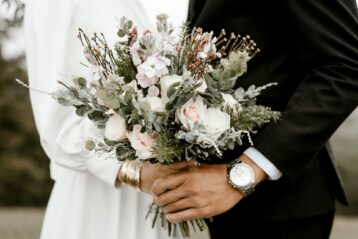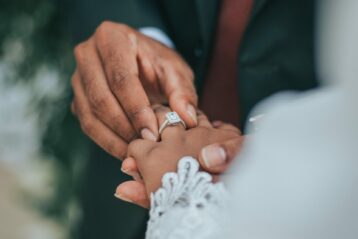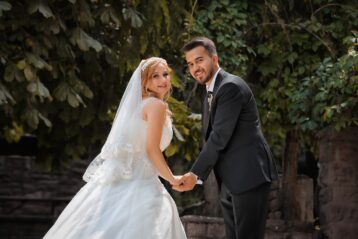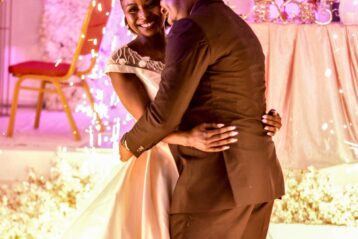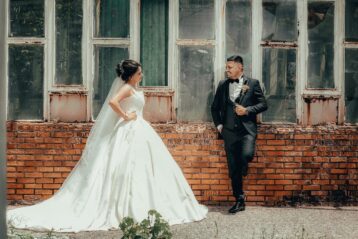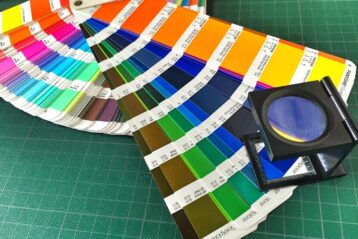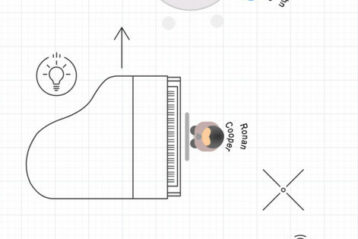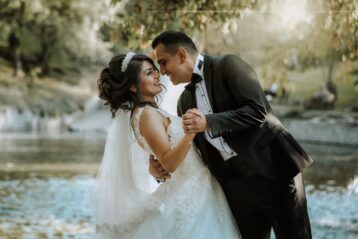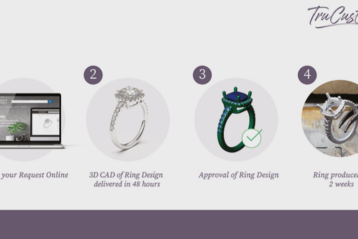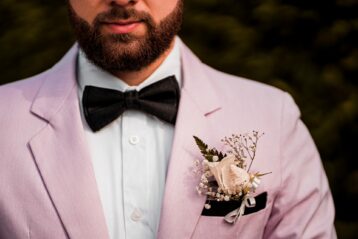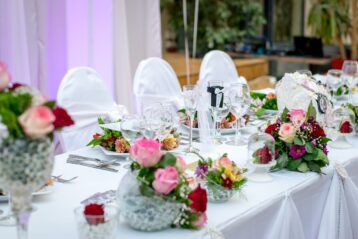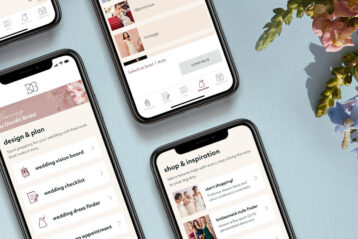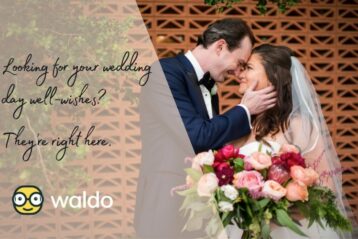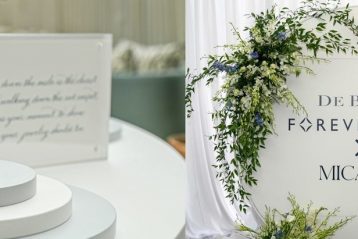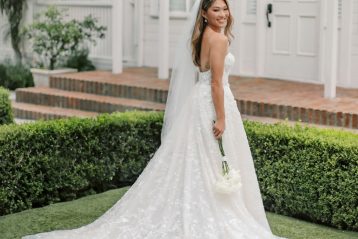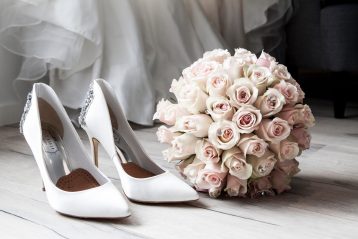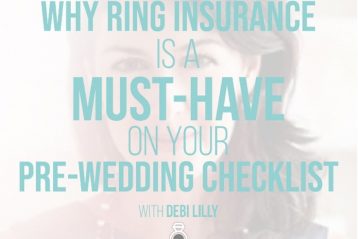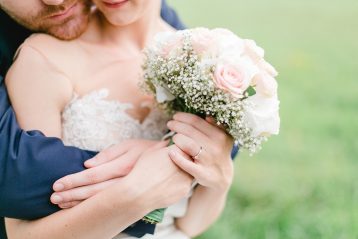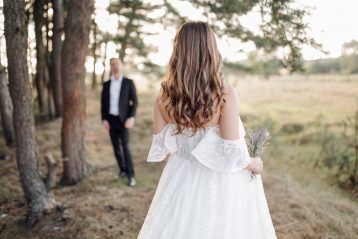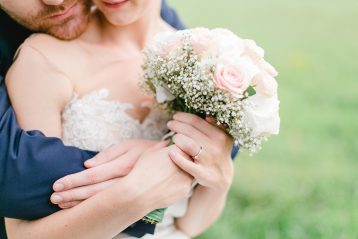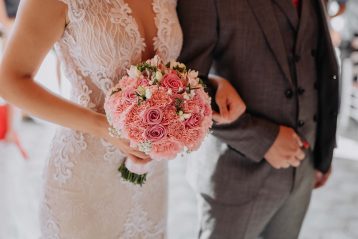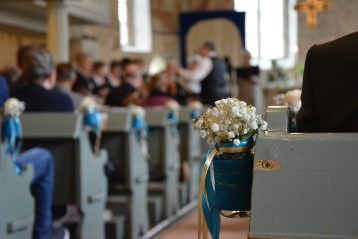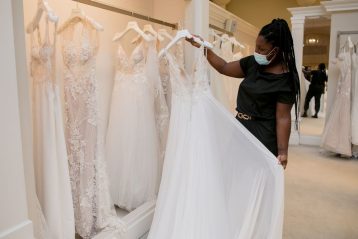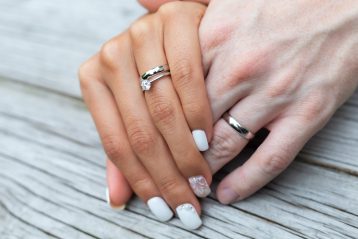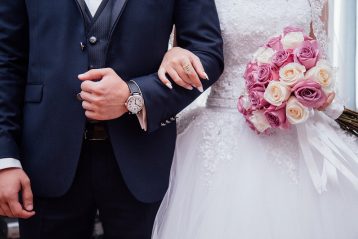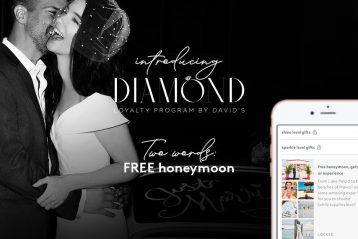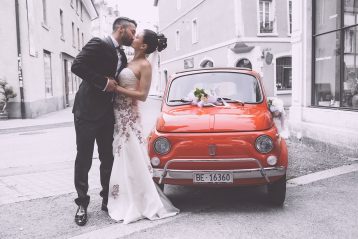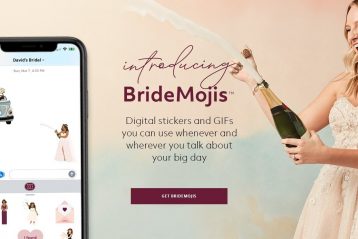
Reveals COVID-19 Impacted Nearly Half of Proposals in 2020, Though Majority of Couples Are Optimistic About Upcoming Weddings With Already Set Wedding Dates, Mostly In 2021.
Largest Study of Its Kind Highlights How COVID-19 Pandemic Placed Additional Pressure on Proposers, With Nearly 1 in 5 Proposals Taking Place Spontaneously in 2020.
NEW YORK–(BUSINESS WIRE)–With Proposal Season—November through February, the most popular time of the year for couples to get engaged1—off to a strong start, leading wedding planning and registry resource The Knot released its 2020 Jewelry & Engagement Study, unveiling how couples and their proposals were impacted by the global COVID-19 pandemic this year. The study of more than 5,000 newly engaged individuals (who got engaged between April and November 2020) found COVID-19 placed additional pressure on proposers—including limited ability to shop in person for engagement jewelry, along with planning their proposal within a shorter time frame to account for constantly evolving pandemic conditions. Plus, 83% of proposers said they felt pressure to curate a highly unique proposal in 2020 (up from 75% in 2019), and nearly half of proposers had to pivot original plans as a result of the pandemic, from changing the location (67%) or date (63%) to involving their loved ones (52%). The study also found the pandemic accelerated a reliance on technology throughout every stage of proposal planning, whether by asking for a family member’s blessing via video chat, conversing with jewelers through online chat boxes or video conferencing platforms when shopping for an engagement ring (13%), or connecting with loved ones for virtual post-proposal celebrations (10%).
Evolutions to proposal planning and continued uncertainty around the longevity of the pandemic have not deterred newly engaged couples from planning their upcoming celebrations. In fact, COVID-19 has resulted in just the opposite—The Knot 2020 Jewelry & Engagement Study found newly engaged couples have experienced an increased sense of urgency to kick-start wedding planning: 8 in 10 newly engaged couples have secured an upcoming wedding date, the majority of which will occur in 2021 (73%), and most (66%, up from 57% in 2019) started to plan their future wedding festivities within one month of getting engaged. Newly engaged couples are also being incredibly intentional when planning their upcoming weddings, and they’re taking their time when it comes to making big decisions and discussing factors like health and safety.
“Despite challenging times and changes to many original proposal plans due to COVID-19, couples around the nation continued to strengthen and progress their relationships, showcasing how even in the most challenging times love cannot be canceled,” said Kristen Maxwell Cooper, editor in chief of The Knot. “Like fellow newly engaged couples, individuals planning to propose this Proposal Season may also need to be flexible with their plans in order to accommodate shifting pandemic conditions and local regulations. However, this will not deter them from declaring their love in a special way and curating intimate, unique moments to ask their partner to spend forever together.”
Average Proposal Planning Timelines Shorten in 2020
While nearly half of proposers in 2019 spent 1 to 6 months planning a hyper-personalized proposal, many proposers resorted to shorter time frames out of necessity in 2020 to accommodate ever-changing conditions of the pandemic. Roughly 50% of proposers in 2020 said they started planning within four weeks of the proposal taking place, as making plans farther in advance posed additional challenges while COVID-19 continued to impact the nation. Plus, many proposers (48%) had to rethink their proposal plans, as the pandemic altered their original proposal location (67%), date (63%) and how the proposal took place (56%). Among those whose proposal dates were impacted, 6 in 10 were delayed, mostly (71%) due to COVID-19 restrictions. Additionally, among those whose proposals were impacted, more than half (52%) reported that the pandemic changed the involvement of friends and family. However, among all couples, 1 in 10 opted to host same-day virtual engagement parties with their loved ones. Interestingly, 2020 proposers were more likely than those in years past to ask their partner to spend forever together spontaneously (17%, up from 13% in 2019), deciding day-of that they would propose.
Despite many proposers needing to alter their original proposal plans, the most popular proposal locations in 2020 remained the same as previous years: scenic viewpoints (31%), at their home (23%), at a place with significance to the couple (16%), and during outdoor activities like hiking (15%, up from 12% in 2019). And with stay-at-home measures in place throughout the year, many couples spent time connecting in nature when possible, making the outdoors a great place to propose for 4 in 10 couples. Plus, in 2020 private proposals continued to be the norm, with half of couples getting engaged with just the two of them present.
COVID-19 Accelerates Reliance on Digital Ring Shopping Experiences
Technology plays an important role in everyday life for millennials and Gen Zers—in fact, 1 in 4 newly engaged couples met on dating apps, making it the most popular way of meeting—so it’s no surprise they’ve increasingly relied on digital resources in recent years for proposal and wedding planning needs. However, the pandemic furthered couples’ reliance on technology for every stage of pre-proposal planning, especially shopping for an engagement ring. Many proposers used more online features throughout the process due to COVID-19, whether by increasing the amount of time spent researching engagement rings online (33%), connecting with jewelers via social media (11%), or even using virtual tools for online consultations with jewelers (10%). As a result, nearly a third of engagement rings were purchased online in 2020, though the majority (63%) continue to be purchased in person at either a local jeweler (51%) or national retailer (33%). Due to social distancing guidelines and limited in-store appointments, however, proposers visited less retailers in 2020 (on average 2, down from 3 in 2019) and viewed significantly less rings (8, down from 15 in 2019) before selecting the one.
Although ring shopping experiences looked different this year, the pandemic, state of the economy and overall uncertainty around the future did not impact engagement ring spend for most to-be-weds (86%). In fact, it resulted in minimal change to the national average cost of an engagement ring in 2020 ($5,500, compared to $5,900 in 2019). Plus, engagement ring shopping in 2020 continued to be a two-person job for most couples, as 72% of proposees reported being involved in the selection of their engagement ring.
Additional 2020 Engagement Ring Trends:
|
Most Popular Center Stone Cuts: |
Round (43%), Princess/Square (13%), Oval (15%) |
|
Most Popular Ring Setting Material: |
White gold (48%), Yellow gold (16%), Rose gold (13%), Platinum (13%) |
|
Most Important Ring Features for Proposees: |
Style & Setting, Center Stone Shape, Type of Stone |
|
Average Total Ring & Center Stone Size: |
1.5 ct (total), 1.3 ct (center stone) |
|
Percentage of Rings With Customizations: |
48% |
Looking Forward: Newly Engaged Couples Are Eager to Say “I Do”
One silver lining of the pandemic is that it offered many couples an additional chance to connect, as quarantine restrictions resulted in the majority of newly engaged couples (68%) spending more time together—13% even moved in together prior to getting engaged as a result of the quarantine. The additional time together encouraged couples to think more about their futures pre-engagement, including their wedding.
With so many additional factors to consider, including increased health and safety measures and evolving local event restrictions, COVID-19 has couples thinking of and planning for their weddings earlier than ever before. In fact, 72% of newly engaged individuals took at least one wedding planning action prior to the proposal in 2020 (think researching vendors, discussing potential wedding dates and even starting a guest list). Plus, the majority of newly engaged couples felt a sense of urgency around wedding planning and therefore started planning within one month after getting engaged (66%, up from 57% in 2019). As a result, more than 8 in 10 couples who got engaged between April and November 2020 have already set their upcoming wedding date, with more than 7 in 10 couples opting for dates in 2021 (71% of whom report selecting dates in the second half of the year), while 1 in 5 couples have chosen a date in 2022. On the other hand, 20% of newly engaged couples have not set a date for their wedding, the majority of whom (59%) attribute the delay to the continuation of COVID-19’s impact in the US.
Source1 — The Knot 2019 Real Weddings Study
Methodology
The Knot 2020 Jewelry & Engagement Study was conducted in November 2020 among more than 5,000 adults who got engaged between April and November 2020 (N=5,017). All respondents were adults aged 18-54 who provided their emails to The Knot Worldwide. Respondents were from a variety of locations around the US.
About The Knot
The Knot is the nation’s leading multiplatform wedding resource offering a seamless, all-in-one planning experience—from finding inspiration and local vendors to creating and managing all guest experiences, wedding registries and more. The trusted brand reaches a majority of engaged couples in the US through the #1 wedding planning website TheKnot.com and #1 iOS and Android mobile app The Knot Wedding Planner, The Knot national wedding magazine, and The Knot book series. Since its inception, The Knot has inspired approximately 25 million couples to plan a wedding that’s uniquely them. Visit The Knot online at TheKnot.com and follow on social media: Facebook.com/TheKnot and @TheKnot on Twitter, Pinterest and Instagram.
Media Contact:
Melissa Bach
Senior Director, Public Relations & Brand Marketing
Stephanie Colpo
Senior Manager, Public Relations & Brand Marketing
Lauren LaBelle
Manager, Public Relations & Brand Marketing
Emilie Berman
Specialist, Public Relations & Brand Marketing



